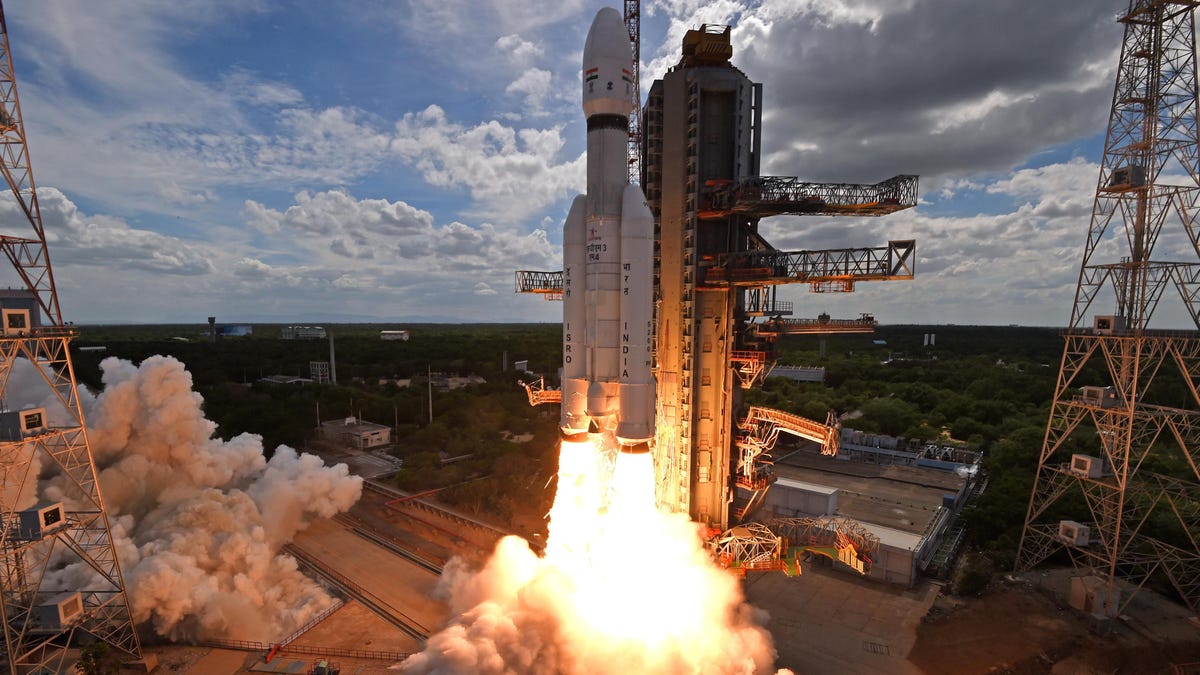India’s Chandrayaan-3 mission launched on July 14, headed towards a historic touchdown on the lunar surface. But before the lunar lander took off, it had to wait a few seconds until its path to orbit was clear.
During the 74th International Astronautical Congress held in Baku, Azerbaijan, Anil Kumar, chief general manager of safe and sustainable space operations at the Indian Space Research Organization (ISRO), revealed that the nominal launch time of Chandrayaan-3 was changed after analyzing the orbits of tracked space objects, SpaceNews reported. The lunar mission had to delay its launch on board India’s Launch Vehicle Mark-3 (LVM3) rocket by four seconds to avoid the possibility of colliding with other objects.
“For this LVM-3 launch on that particular day…when we analyzed, we found that during the first orbital phase of Chandrayaan-3 many objects, including operational objects, were coming closer than one kilometer [0.6 miles],” Kumar is quoted in SpaceNews as saying.
Before launch, liftoff should be cleared for all space launch vehicles as a mandatory practice, Kumar added. This type of practice has become even more crucial today with the influx of rockets, satellites, and other objects launching to space. Last year, the U.S. Space Command revealed that it was tracking more than 47,000 objects in space.
India’s Chandrayaan-3 mission successfully landed on the Moon on August 23, making India the fourth country to achieve such feat after the Soviet Union, the U.S., and China. The mission’s rover and lander were set to sleep mode on September 3, which marked the end of the lunar daytime (which lasts for around 14 Earth days).
Efforts to revive the mission from its nap have been unsuccessful, but the mission itself has proven to be a huge success with the time that it spent exploring the lunar surface. The Chandrayaan-3 rover found traces of sulfur and other chemical elements on the lunar south pole, and the mission measured the temperature profile of this previously unexplored region.
For more spaceflight in your life, follow us on X (formerly Twitter) and bookmark Gizmodo’s dedicated Spaceflight page.

